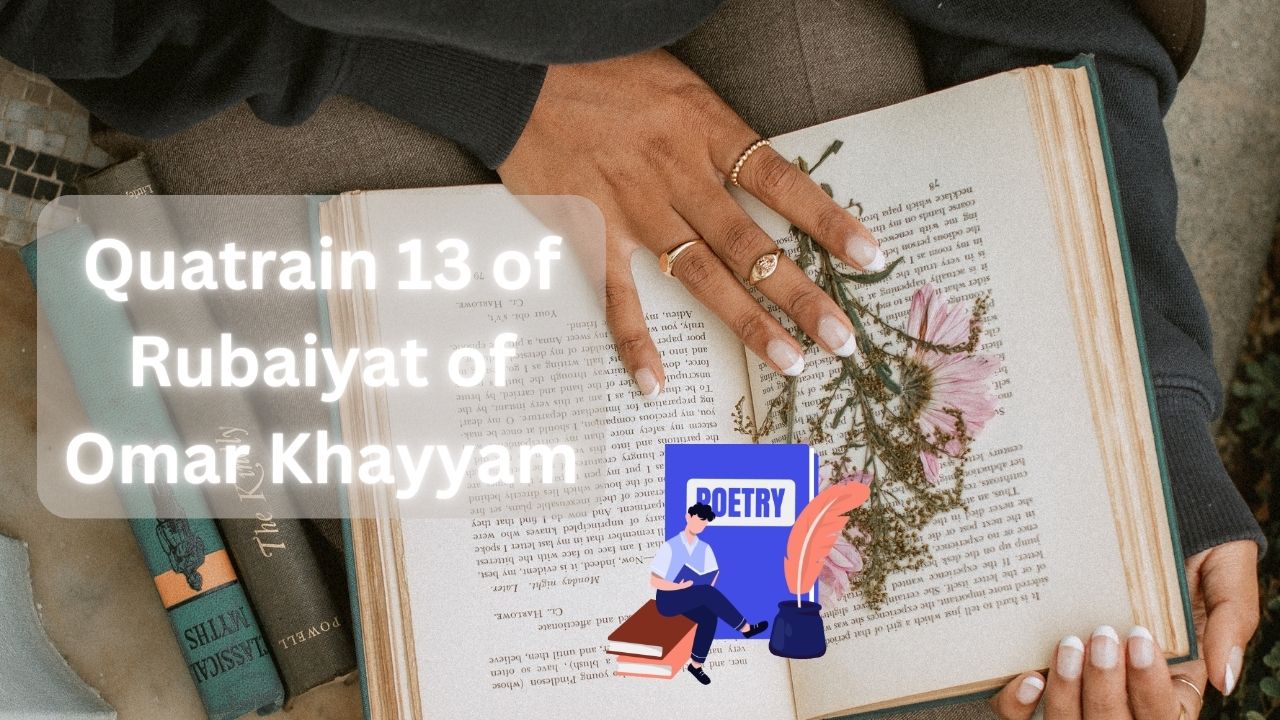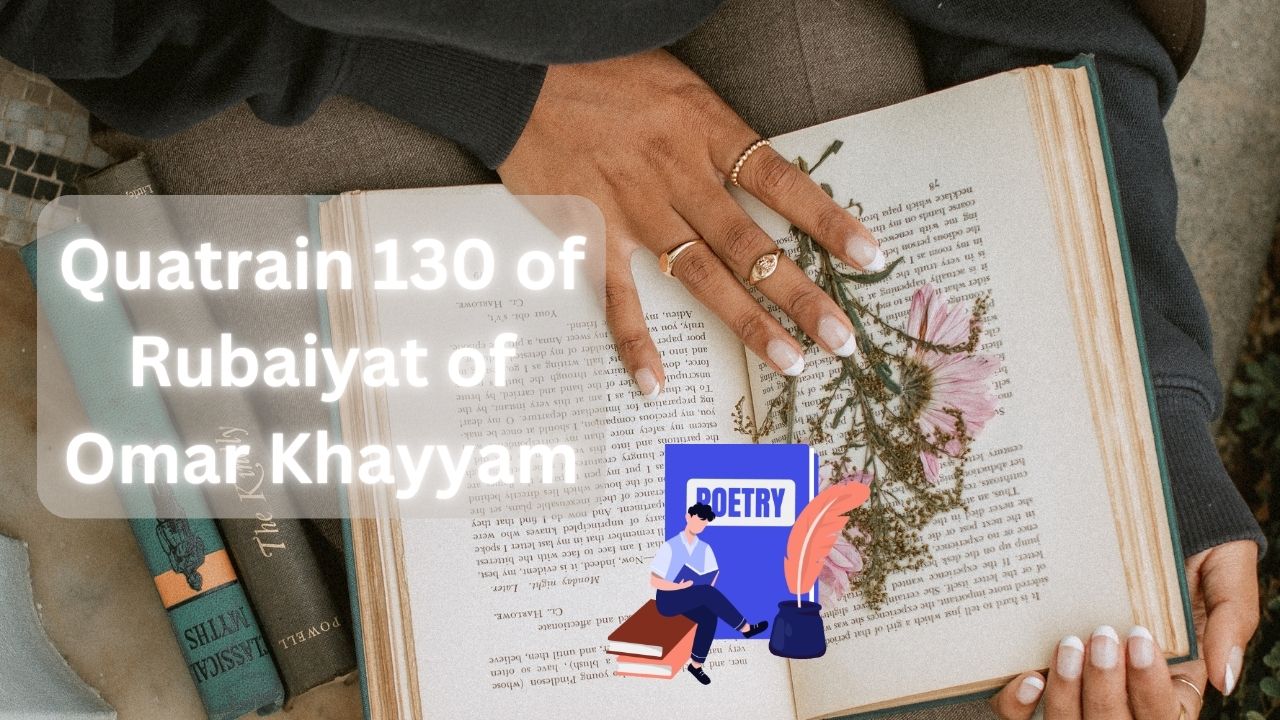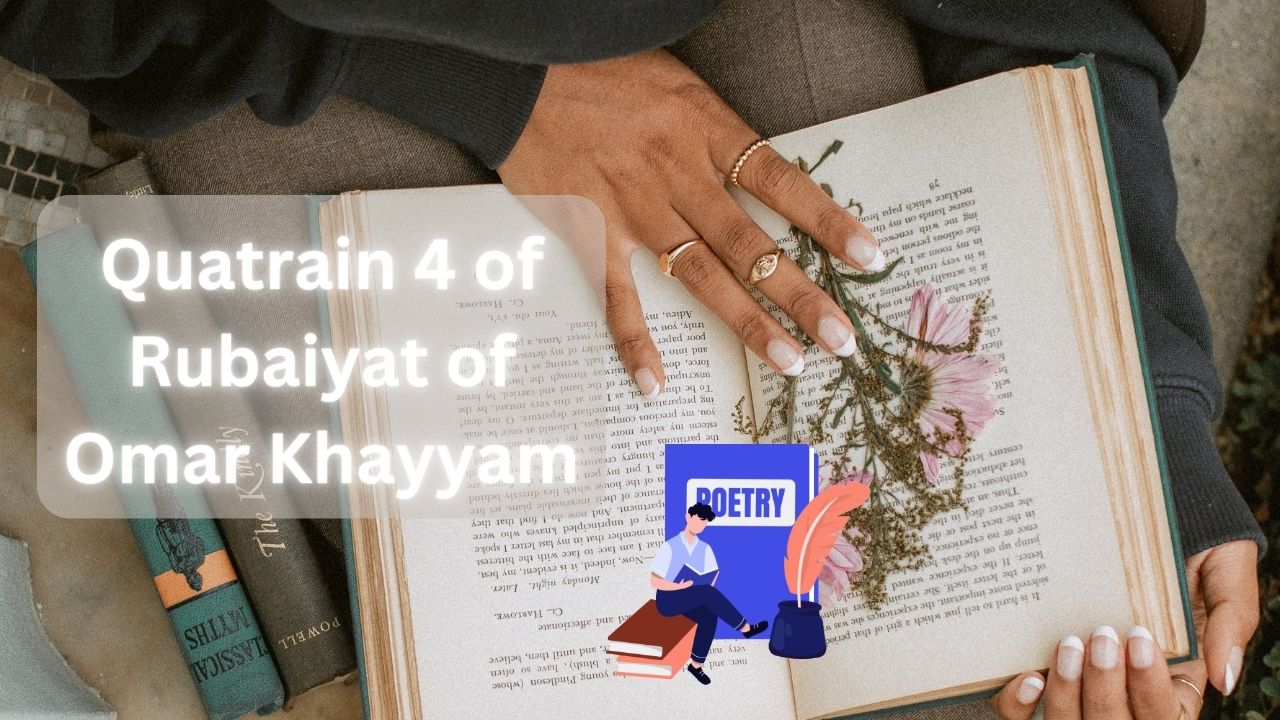Embrace and savor your existence before your moments slip away. This is the wisdom imparted by Khayyam in Quatrain number 13. Let’s read the Persian verse first, followed by its translation in English:
ای دل چو زمانه می کند غمناکت
ناگه برود ز تن روان پاکت
بر سبزه نشین و خوش بزی روزی چند
زآن پیش که سبزه بر دمد از خاکت
O heart, when the world makes you sorrowful, Suddenly, your pure soul will leave your body.
Sit on the grass and be happy for a few days, Before grass grows out from your dust.
Khayyam is a master at revealing the reality of this world to his audience. So much so that in all his quatrains, we see that while he views the world as very bleak, he makes use of every moment of life, strives for pleasure, and knows that a person who spends their life on metaphysical theories has in fact sold their life for nothing. Of course, he does not sell his life for nothing and dedicates his life to joy, drunkenness, and wine.
The first verse is a rhetorical question that asks the reader to ponder: O heart, how does the era sadden you? The word “چو” here means “how,” and Khayyam asks, O heart, how does the era and fate sadden you, or why should the era sadden you when you know and have seen and are certain that suddenly—meaning without prior knowledge—you must leave this world? A world that, according to other quatrains of Khayyam, is transient. A world where there is no doubt or uncertainty about being in it. In the second line, he sarcastically says that the sudden departure of the pure soul from the body is nothing but a taunt, and it only means death. It’s a prelude to the next verse that informs us to live in the moment. The past is over, and we should only learn from it for a better life, to improve our current and future lives—a future that has not yet come and is unknown to anyone, shrouded in mystery. So instead of futile thoughts, we should take lessons from the greenery grown from the bodies of the past, sit on that same greenery, enjoy the present, and be happy. On the greenery of those who were once happy or sad but are now nothing more than grass, signifying a common end for both groups. The only distinction between them is how they lived during their lifetime.
Be happy, be joyful. And know that one of the important principles of being happy is to ensure others also share in this joy—not that our happiness causes some of our fellow beings to suffer. Inflicting pain on others never leads to happiness or joy because ultimately it causes our own displeasure—if we are human.





